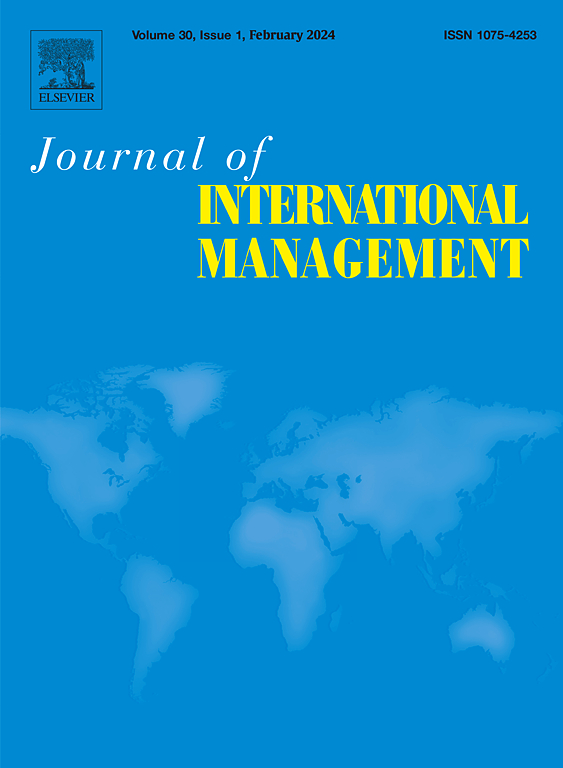Fostering assigned expatriates' thriving at work through cultural intelligence and local embeddedness: The role of relational attachment
IF 5.9
2区 管理学
Q1 MANAGEMENT
引用次数: 0
Abstract
Past research has noted that assigned expatriates (AEs) face challenges that often lead to premature termination when dispatched by the parent organisation to live and work abroad. However, recent statistics show that most AEs have no knowledge on how to overcome these cultural challenges prior to sending them abroad. Guided by the socially embedded model of thriving at work, we explain how cultural intelligence leads to local embeddedness and the latter's effect on AEs thriving at work. Further, the relationship between local embeddedness and AEs' thriving at work differs across varying levels of relational attachment. Our unique three-month time-lagged data from 234 AEs in eight multinational corporations (MNCs) with subsidiaries in Ghana offered support to our hypotheses. Cultural intelligence promotes local embeddedness, which, in turn, stimulates AEs thriving at work. Additionally, higher levels of relational attachment prompt AEs to leverage their local embeddedness to learn novel things that make them feel alive, energized, and awake at work. Implications for theory and practice, limitations and future research directions are discussed.
通过文化智慧和本地嵌入性促进外派人员在工作中蓬勃发展:关系依恋的作用
过去的研究指出,外派员工(ae)面临的挑战往往导致他们被母公司派往国外生活和工作时被提前解雇。然而,最近的统计数据显示,大多数留学生在出国之前并不知道如何克服这些文化挑战。在社会嵌入模型的指导下,我们解释了文化智力如何导致本地嵌入,以及后者对工作中蓬勃发展的影响。此外,在不同层次的关系依恋中,本地嵌入性与ae在工作中表现良好之间的关系也有所不同。我们从8家在加纳设有子公司的跨国公司(MNCs)的234家企业获得的独特的三个月滞后数据为我们的假设提供了支持。文化智商促进了对当地的归属感,这反过来又刺激了员工在工作中表现出色。此外,更高水平的关系依恋促使ae利用他们的本地嵌入性来学习新奇的东西,使他们在工作中感到充满活力、精力充沛和清醒。讨论了理论与实践的意义、局限性和未来的研究方向。
本文章由计算机程序翻译,如有差异,请以英文原文为准。
求助全文
约1分钟内获得全文
求助全文
来源期刊

Journal of International Management
MANAGEMENT-
自引率
9.80%
发文量
67
审稿时长
81 days
期刊介绍:
The Journal of International Management is devoted to advancing an understanding of issues in the management of global enterprises, global management theory, and practice; and providing theoretical and managerial implications useful for the further development of research. It is designed to serve an audience of academic researchers and educators, as well as business professionals, by publishing both theoretical and empirical research relating to international management and strategy issues. JIM publishes theoretical and empirical research addressing international business strategy, comparative and cross-cultural management, risk management, organizational behavior, and human resource management, among others.
 求助内容:
求助内容: 应助结果提醒方式:
应助结果提醒方式:


